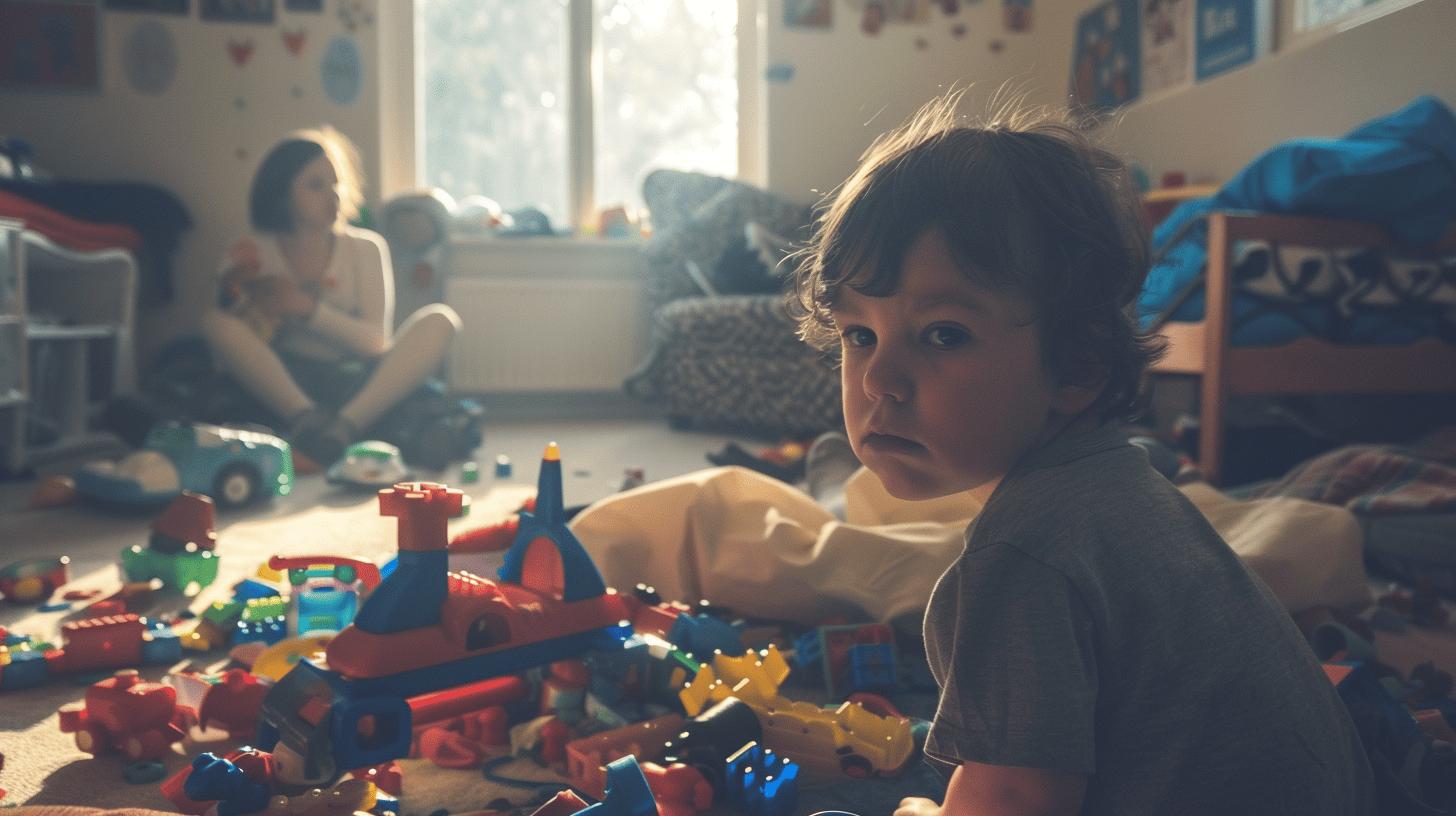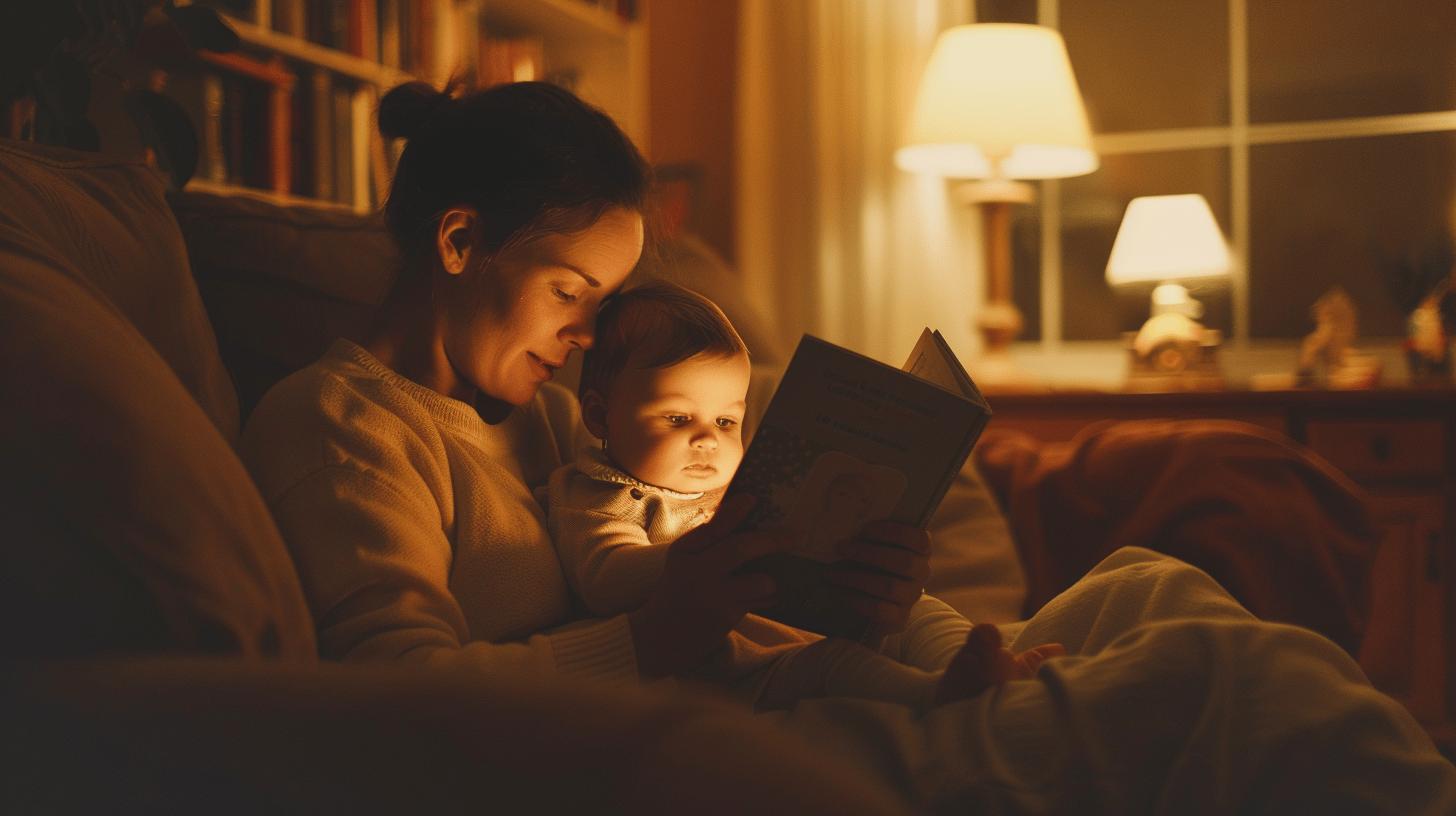Is your parenting style setting your child up for success, or could it be holding them back? Understanding the truth behind parenting styles could be the game-changer you need. Dive into the intricacies of authoritative, authoritarian, permissive, and uninvolved parenting to see which approach best nurtures your child's growth. Discover the true impact of your choices and make informed decisions to raise happy, well-adjusted children. Ready for an eye-opening exploration? Let’s unravel which parenting style truly benefits your child the most.
Understanding Different Parenting Styles
Authoritative parenting is characterized by high responsiveness and high demands. Parents who practice this style set clear standards and are supportive, nurturing, and communicative. They encourage independence while maintaining limits and guidelines. This balanced approach often leads to children who are confident, self-reliant, and socially adept.
In contrast, authoritarian parenting involves high demands but low responsiveness. Parents enforce strict rules and expect obedience without providing much warmth or feedback. This style focuses on control and discipline, often leading to children who may be well-behaved yet struggle with self-esteem and social skills due to the lack of emotional support.
Permissive parenting is marked by high responsiveness but low demands. Permissive parents are indulgent, often acting more like friends than authority figures. They do not require mature behavior and avoid setting firm boundaries. As a result, children from permissive households may exhibit behavioral problems and have difficulty respecting authority, often struggling with self-discipline and academic performance.
Uninvolved parenting features low demands and low responsiveness. Parents practicing this style are detached from their children's lives, providing little guidance, nurturing, or attention. This neglectful approach can lead to attachment issues, poor academic performance, and behavioral problems, making it the most detrimental style among the four.
- Authoritative Parenting: High responsiveness and high demands.
- Authoritarian Parenting: High demands but low responsiveness.
- Permissive Parenting: High responsiveness but low demands.
- Uninvolved Parenting: Low demands and low responsiveness.
True Statements About Authoritative Parenting

Research indicates that authoritative parenting is generally associated with the most positive outcomes in children. For example, children raised in authoritative households tend to have higher academic performance. This stems from the structured yet supportive environment that encourages learning and personal growth. Additionally, authoritative parenting fosters better social skills, as children are taught to communicate and interact effectively.
Diane Baumrind, a developmental psychologist, first defined authoritative parenting. This style combines high responsiveness with high demands. Parents set clear boundaries and expectations while being nurturing and involved in their children’s lives. This balance helps children develop a sense of responsibility and independence, which are crucial traits for their overall development.
Authoritative parenting also contributes to lower levels of depression and anxiety in children. The consistent support and open communication channels help children feel secure and understood. This emotional stability is a significant benefit, promoting mental well-being and resilience.
| Parenting Style | Positive Outcomes |
|---|---|
| Authoritative | High academic performance, better social skills, lower depression and anxiety |
| Authoritarian | Compliance, discipline |
| Permissive | Creativity, self-expression |
| Uninvolved | Independence, self-reliance (to some extent) |
True Statements About Authoritarian Parenting
Does authoritarian parenting involve high demands and low responsiveness? Yes, it does. In this style, parents enforce strict rules and expect obedience without providing much warmth or feedback. This approach focuses on control and discipline, often leading to children who may be well-behaved at home. However, these children might rebel with peers and struggle with authority figures outside the home.
Can authoritarian parenting lead to lower self-esteem in children? Yes, it can. The lack of emotional support and constant enforcement of rules can make children feel undervalued. This can result in lower self-esteem, as children may internalize the belief that they are not good enough unless they meet stringent expectations.
Does authoritarian parenting result in poorer social skills? Yes, it often does. Children raised under this style may have less independence and poorer social skills because they are not encouraged to express themselves or engage in decision-making. This lack of social interaction and autonomy can hinder their ability to develop essential interpersonal skills.
- High levels of obedience and discipline
- Lower self-esteem
- Less independence
- Poorer social skills
- Increased likelihood of rebelling with peers
True Statements About Permissive Parenting

Is permissive parenting marked by high responsiveness but low demands? Yes, it is. Permissive parents are indulgent and nurturing, often prioritizing their children's desires over setting rules and expectations. This approach can lead to a lack of structure, causing children to struggle with boundaries and authority.
Do children of permissive parents exhibit more behavioral problems? Yes, they often do. Due to the absence of consistent rules, children may find it challenging to adhere to societal norms and respect authority figures. This can result in increased behavioral issues, both at home and in social settings.
Does permissive parenting result in poor academic performance and lack of self-discipline? Yes, it frequently does. Without clear guidelines and expectations, children might not develop the self-discipline needed for academic success. They may also lack the motivation to achieve their goals, leading to subpar performance in school.
- Increased behavioral problems
- Difficulty respecting authority
- Poor academic performance
- Lack of self-discipline
True Statements About Uninvolved Parenting
Does uninvolved parenting feature low demands and low responsiveness? Yes, it does. Uninvolved or neglectful parenting is characterized by a lack of engagement in a child's life. These parents provide minimal guidance, nurturing, or attention. This approach often leaves children feeling neglected and unsupported, impacting their overall development.
Do children of neglectful parents often experience attachment issues? Yes, they do. Due to the lack of emotional and physical presence, children raised by uninvolved parents frequently face attachment problems. They may struggle to form secure relationships and often feel abandoned or unimportant. This can lead to long-term emotional and psychological difficulties.
Is uninvolved parenting linked to the most negative outcomes among all parenting styles? Yes, it is. Research consistently shows that children of neglectful parents tend to have the worst developmental outcomes. These children often suffer from poor academic performance and exhibit behavioral problems. The lack of parental involvement severely hampers their ability to succeed in various aspects of life.
| Outcome | Description |
|---|---|
| Attachment Issues | Difficulty forming secure relationships |
| Poor Academic Performance | Lower grades and lack of motivation |
| Behavioral Problems | Increased likelihood of acting out |
| Emotional Difficulties | Feelings of abandonment and low self-worth |
How Parenting Styles Affect Child Development

Which parenting style has the most positive impact on child development? Authoritative parenting is linked to better emotional, cognitive, and behavioral outcomes. Children raised by authoritative parents often display higher self-esteem, better academic performance, and superior social skills. This style balances high expectations with emotional support, fostering an environment where children feel secure and motivated to succeed.
Does authoritarian parenting negatively affect a child's development? Yes, it can. Authoritarian parenting often leads to lower self-esteem and social skills. The strict rules and lack of warmth may make children feel undervalued, impacting their confidence and ability to interact socially. While these children might comply with rules, they might also struggle with independence and decision-making.
Is permissive parenting associated with negative developmental outcomes? Yes, permissive parenting can result in behavioral problems and poor academic performance. By avoiding setting firm boundaries and indulging children's desires, permissive parents may inadvertently hinder their child's ability to develop self-discipline and respect for authority. This lack of structure can lead to difficulties in academic and social settings.
Does uninvolved parenting have the most detrimental effects on child development? Yes, it does. Uninvolved parenting is associated with attachment issues and poor academic and social outcomes. The lack of guidance and emotional support can make children feel neglected, leading to long-term emotional and behavioral problems. These children often perform poorly in school and struggle to form secure relationships.
- Authoritative Parenting: Higher self-esteem, better academic performance, superior social skills
- Authoritarian Parenting: Lower self-esteem, poor social skills, compliance with rules
- Permissive Parenting: Behavioral problems, poor academic performance, lack of self-discipline
- Uninvolved Parenting: Attachment issues, poor academic performance, emotional and behavioral problems
Research and Evidence Supporting True Statements
Does research support that authoritative parenting leads to higher academic performance, better social skills, and lower levels of depression and anxiety? Yes, it does. Numerous studies have found that children raised by authoritative parents tend to excel academically, demonstrating higher levels of school engagement and achievement. These children also exhibit superior social skills, benefiting from the balanced approach of high expectations and emotional support. Furthermore, the open communication and nurturing environment typical of authoritative parenting contribute to lower levels of depression and anxiety in children.
Is authoritarian parenting linked to lower self-esteem and poorer social skills? Yes, it is. Research consistently shows that the strict, controlling nature of authoritarian parenting can negatively impact a child's self-esteem. The lack of emotional warmth and rigid expectations can make children feel undervalued, leading to lower confidence levels. Additionally, children raised in such environments may struggle with social interactions, as they are less likely to develop the necessary social skills to navigate relationships effectively.
Is permissive parenting associated with behavioral problems and poor academic performance? Yes, it is. Studies indicate that children of permissive parents often face challenges with self-discipline and authority. The absence of firm boundaries and consistent rules can lead to increased behavioral problems, both at home and in educational settings. This lack of structure often results in poor academic performance, as children may struggle to stay focused and motivated without clear expectations and guidance.
Does uninvolved parenting result in the worst outcomes, including attachment issues and behavioral problems? Yes, it does. Research highlights that children with uninvolved parents experience significant developmental challenges. The lack of parental engagement and emotional support can lead to severe attachment issues, making it difficult for these children to form secure relationships. Additionally, the absence of guidance and structure often results in poor academic performance and increased behavioral problems, making uninvolved parenting the most detrimental style among the four.
| Parenting Style | Research Findings |
|---|---|
| Authoritative | Higher academic performance, better social skills, lower depression and anxiety |
| Authoritarian | Lower self-esteem, poorer social skills |
| Permissive | Behavioral problems, poor academic performance |
| Uninvolved | Attachment issues, behavioral problems |
Final Words
Understanding different parenting styles is crucial for fostering your child’s development. In the action, we examined authoritative, authoritarian, permissive, and uninvolved parenting styles, noting their distinctive characteristics and outcomes.
Reflecting on authoritative parenting, it's evident this style yields the most positive outcomes, such as better social skills and academic performance. Comparatively, authoritarian, permissive, and uninvolved parenting exhibit various negative impacts on children’s behavior and emotional well-being.
Among the statements about parenting styles, it's true that authoritative parenting offers the most balanced approach. Each style influences child development uniquely, making informed choices vital for raising happy and healthy kids.
Embrace the knowledge shared and strive for a parenting style that supports your child’s growth and happiness.
FAQ
Which parenting style is most encouraged in modern America?
Authoritative parenting is most encouraged in modern America due to its balance of responsiveness and demands, leading to positive child outcomes.
Children whose parents have an authoritarian parenting style can be ________.
Children whose parents have an authoritarian parenting style can be obedient but may also show signs of lower self-esteem, poorer social skills, and higher levels of anxiety.
Which of the following illustrates conservation?
An example of conservation is understanding that a liquid's volume remains the same whether it is in a tall, thin glass or a short, wide glass.
According to attachment theory, which of the following is not needed for healthy attachment?
According to attachment theory, material wealth is not needed for healthy attachment. Emotional availability and consistent responsiveness are crucial.
Which statement about parenting styles is true?
A true statement is that authoritative parenting generally leads to the most positive outcomes for children, including better academic performance and social skills.
Which of the following is a developmental issue children face during the sensorimotor stage?
A developmental issue during the sensorimotor stage is object permanence, understanding that objects continue to exist even when they cannot be seen.
When children develop theory-of-mind (ToM), they can recognize that ________.
When children develop theory-of-mind, they can recognize that other people have thoughts, beliefs, and perspectives different from their own.
Which of the following does not occur during the concrete operational stage?
During the concrete operational stage, abstract thinking does not occur. Children at this stage think logically about concrete objects but struggle with abstract ideas.
Which statement about parenting is true?
A true statement about parenting is that the authoritative style combines high expectations with support, leading to well-adjusted children.
What are the 4 types of parenting styles?
The four types of parenting styles are authoritative, authoritarian, permissive, and uninvolved.
Which statement about the authoritative parenting style is true?
A true statement about the authoritative parenting style is that it involves setting high expectations while being supportive and nurturing, leading to balanced and well-adapted children.
What are the four main parenting styles in Quizlet?
The four main parenting styles in Quizlet are authoritative, authoritarian, permissive, and uninvolved.


